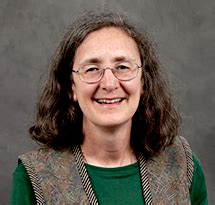A Quote by Richard Louv
We do not raise our children alone.... Our children are also raised by every peer, institution, and family with which they come in contact. Yet parents today expect to be blamed for whatever results occur with their children, and they expect to do their parenting alone.
Related Quotes
Our contemporary society is experimenting with the diminishment of caregivers for children. Some children are raised through crucial stages of life by only one person. This one person, who strives to give the best, may be overwhelmed, busy, trying to raise many children. And even in homes with two parents, many children are essentially alone.
Women without children are also the best of mothers,often, with the patience,interest, and saving grace that the constant relationship with children cannot always sustain. I come to crave our talk and our daughters gain precious aunts. Women who are not mothering their own children have the clarity and focus to see deeply into the character of children webbed by family. A child is fortuante who feels witnessed as a peron,outside relationships with parents by another adult.
The poor, and especially poor people of color, don't have the luxury of raising 'free-range' children without risking severe consequences. Parents of color don't receive a visit and a warning if their children are found playing alone; they are immediately blamed and far more likely to be arrested or lose custody of their children.
Parents ought, through their own behavior and the values by which they live, to provide direction for their children. But they need to rid themselves of the idea that there are surefire methods which, when well applied, will produce certain predictable results. Whatever we do with and for our children ought to flow from our understanding of and our feelings for the particular situation and the relation we wish to exist between us and our child.
Every piece of remotely responsible research that has been done in the last 20 years on this issue has shown there is no difference between children who are raised by same-sex parents and children who are raised by opposite-sex parents. What matters is that children are being raised in a stable, loving environment.
With grown children, we can look back at both our mistakes and what we did well in our parenting, having conversations with a greater degree of honesty than was possible before. In getting older themselves, our adult children may begin to comprehend the burdens and strengths we carried from our own parents.
Many children in the foster care system are often in the midst of a family challenge. Marcus, my husband and I sought to assist families during difficult times. We aren't perfect people, nor are we a perfect family, but these children didn't expect us to be either. They needed a loving home and care, and we tried our best every single day.
The real questions for parents should be: "Are you engaged? Are you paying attention?" If so, plan to make lots of mistakes and bad decisions. Imperfect parenting moments turn into gifts as our children watch us try to figure out what went wrong and how we can do better next time. The mandate is not to be perfect and raise happy children. Perfection doesn't exist, and I've found what makes children happy doesn't always prepare them to be courageous, engaged adults.
Children need stimulation and stability. That can come from grandparents, cousins, teachers, nannies, childcare centres - as long as they engage with the children and are really fond of them. There are also times when children need to be left alone to learn to be independent and to encourage their imaginary friends.
Much of the pressure contemporary parents feel with respect to dressing children in designer clothes, teaching young children academics, and giving them instruction in sports derives directly from our need to use our children to impress others with our economic surplus. We find "good" rather than real reasons for letting our children go along with the crowd.


































